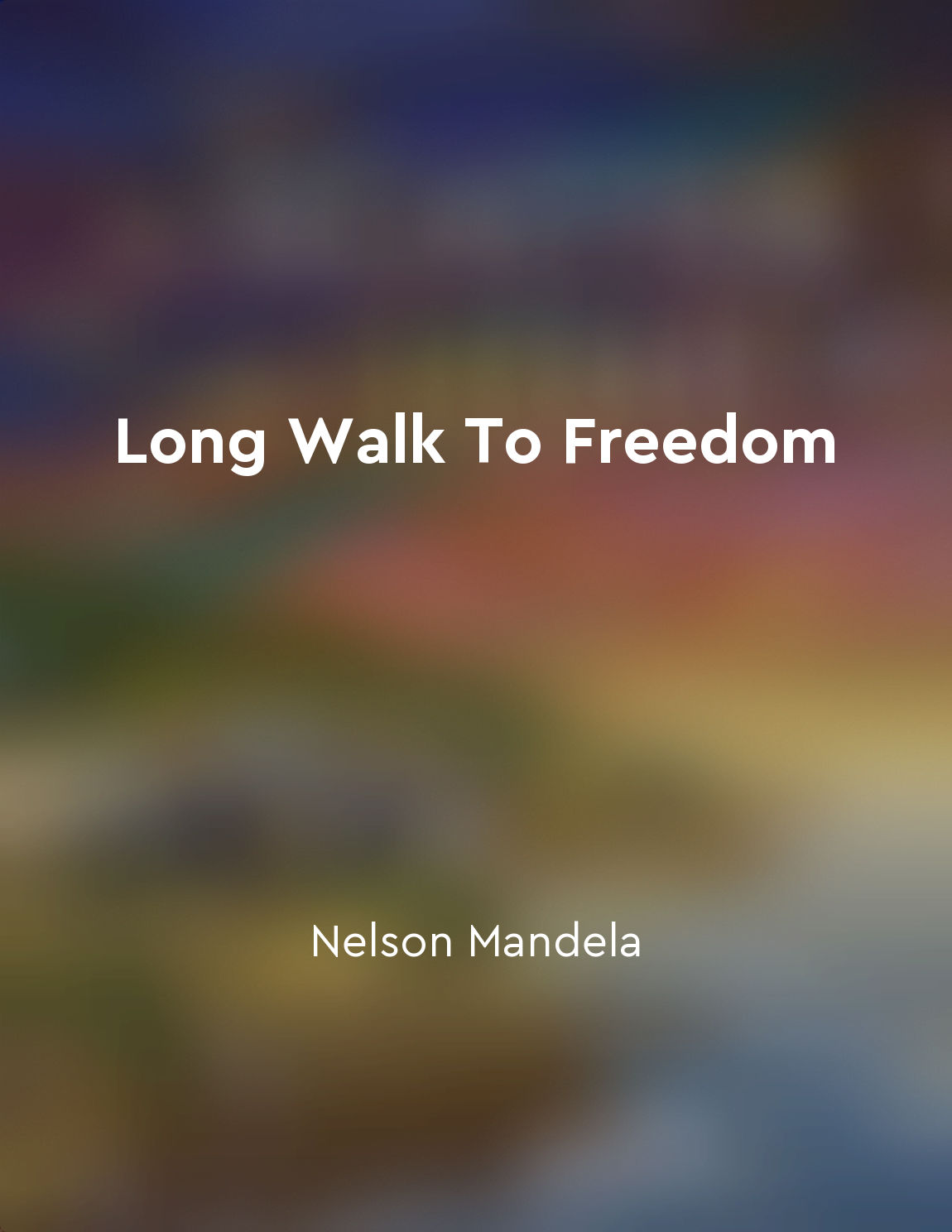Audio available in app
Imprisoned for 27 years from "summary" of Long Walk To Freedom by Nelson Mandela
I was not born with a hunger to be free. I was born free - free in every way that I could know. But my childhood ended when I joined the struggle for freedom, and found myself fighting against oppression. I had no epiphany, no singular revelation, no moment of truth, but a steady accumulation of a thousand slights, a thousand indignities, a thousand unremembered moments, produced in me an anger, a rebelliousness, a desire to fight the system that imprisoned my people. There was no particular day on which I said, Henceforth I will devote myself to the liberation of my people; instead, I simply found myself doing so, and could not do otherwise. The cell is an ideal place to learn to know yourself, to search realistically and regularly the processes of your own mind and feelings. In judging our progress as individuals we tend to concentrate on external factors such as one's social position, influence and popularity, wealth and standard of education... But internal factors may be even more crucial in assessing one's development as a human being: honesty, sincerity, simplicity, humility, pure generosity, absence of vanity, readiness to serve your fellow men - qualities which are within reach of every soul. The authorities were not willing to treat us as human beings. In the beginning, the warders would not give us our food packages, and we lived on rough cornmeal. Sometimes we were given nothing at all. The cells were bitterly cold in winter and boiling hot in summer, and we were kept in them for twenty-three hours a day. We were permitted to read only the Bible and the government's propaganda. We were allowed to write and receive one letter every six months. We could write and receive one visitor of thirty minutes every six months. We could never communicate with our fellow prisoners. Naturally, the authorities were entitled to punish us. But they were not entitled to punish our families, who had committed no crime. I was pained when I received a letter from my wife informing me that she and my children had been driven out of their home and were living in destitution. Moreover, the government had raided my office and frozen all its assets. My salary was stopped. My friends were afraid to be seen with me. I had long been a target of the Special Branch and the government had accumulated a thick dossier on my activities. I had no doubt that they would use any means they could to bring me down. One day, in the firstSimilar Posts
Unveiling the theme of sacrifice and redemption
Throughout the narrative, the theme of sacrifice and redemption is intricately woven into the fabric of the story, shaping the ...

Intergenerational trauma
Intergenerational trauma is like a ghost that haunts families, passing from one generation to the next like a dark inheritance....
Thurgood Marshall was a trailblazing Supreme Court justice
Thurgood Marshall was a trailblazing Supreme Court justice who made history with his groundbreaking legal victories. Born in Ba...
The prisoners endured harsh conditions and cruel treatment
The prisoners in the Gulag endured conditions so harsh that it is difficult for those who have not experienced it to truly comp...
The Gulag Archipelago is a testament to the enduring power of the human spirit
In the face of unimaginable suffering and oppression, the prisoners in the Gulag Archipelago demonstrated an unwavering resilie...
The Gulag revealed the depths of human depravity
The Gulag was a vast network of forced labor camps where countless individuals suffered unimaginable cruelty and brutality. In ...
Used his experiences to help others in need
Dave Pelzer, a survivor of extreme child abuse, has turned his traumatic experiences into a source of strength and motivation t...

Gratitude for second chances
The idea of being grateful for second chances is a recurring theme in the story of my life. Throughout my journey, I have encou...

